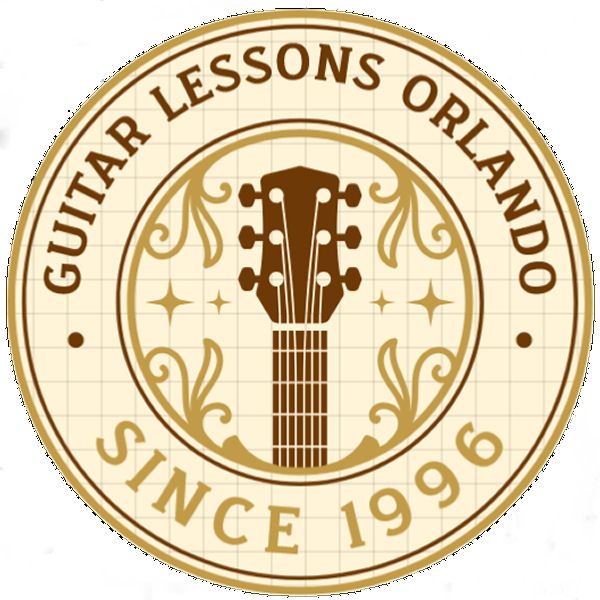About Your Lessons
All lessons are approached with the student in mind. Each student learns at his or her own pace and understanding. Lessons will include, but not be limited to the following:
* Building your chord vocabulary.
* Learning practicing techniques.
* Learning how to play your favorite songs.
* Learning how to write your own songs.
* Basic understanding of music theory applied to the guitar or bass guitar.
* Improvisation and creative approach to learning scales and melodies.
* Tuning and maintenance of your guitar, including how to change your strings.
* Jam-alongs with the student. Applying what you've learned to a real jam session between you and your instructor.
* Styles and genres I instruct include: Blues, Rock, Country and Jazz.
Accepting students ages 12 years and older. All lessons are done in your home. Only select areas of Central Florida will be scheduled
Some locations may require a higher rate per hour depending on location.
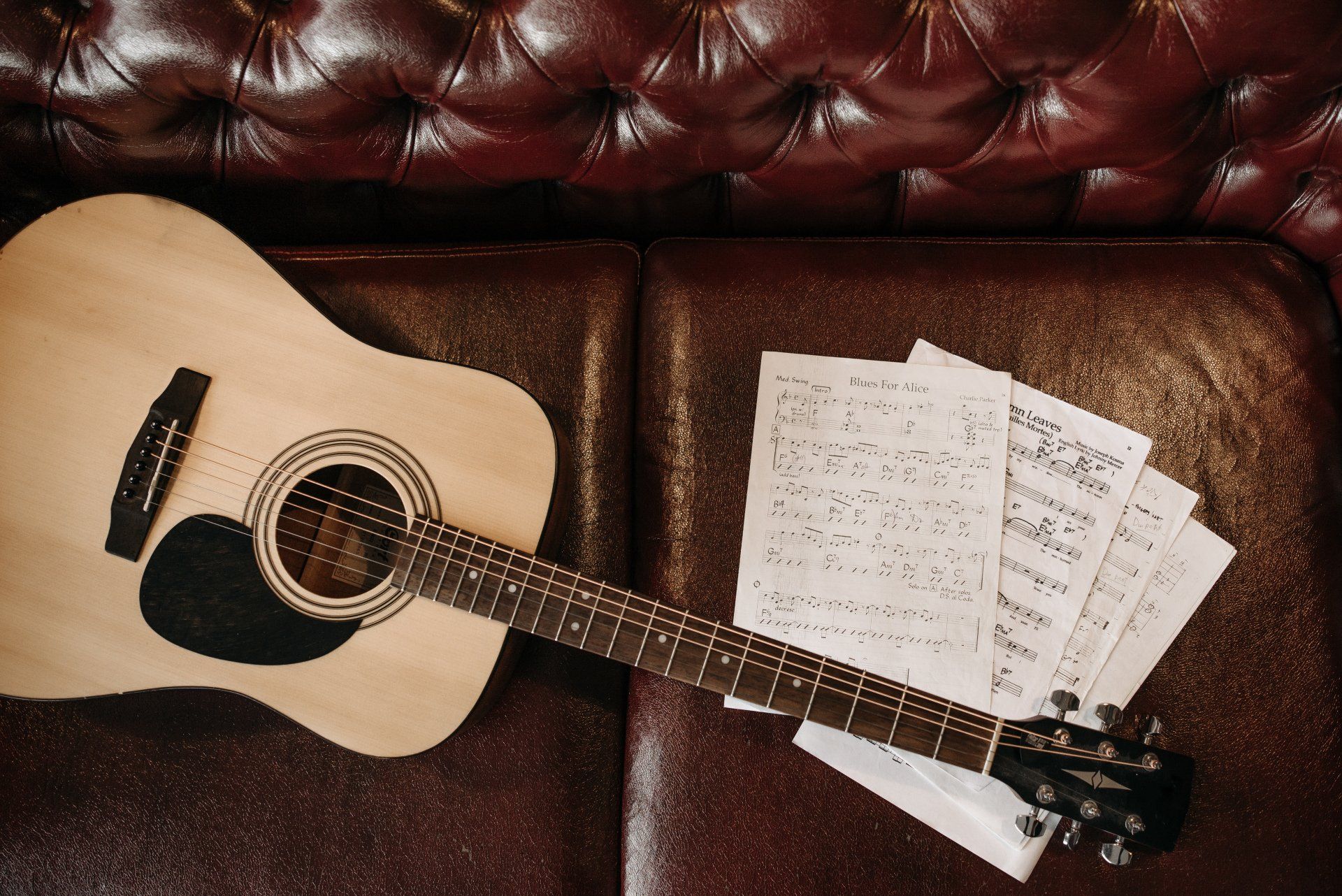
What does it mean to take acoustic or electric guitar lessons?
The acoustic guitar is one of the most common instruments that almost anyone can learn how to play. Taking guitar lessons means committing to and having the discipline to practice at least one hour everyday. Your guitar instructor is there to provide the help and guidance you will need to learn how to practice and play your guitar properly and efficiently. Lessons will normally include, but not be limited to: Building your chord vocabulary, Practicing scales and fingers stretching exercises with a metronome, Understanding basic music theory applied to the guitar, along with Song Writing, Improvisation and of course, how to play your favorite songs. You will also learn how to tune your guitar and learn how to maintain proper and periodical changing of strings. Taking guitar lessons can last for several months or several years. Becoming a guitar player is a lifetime choice that requires 100% commitment as a music student. Are you that student? Are you ready to make that commitment?
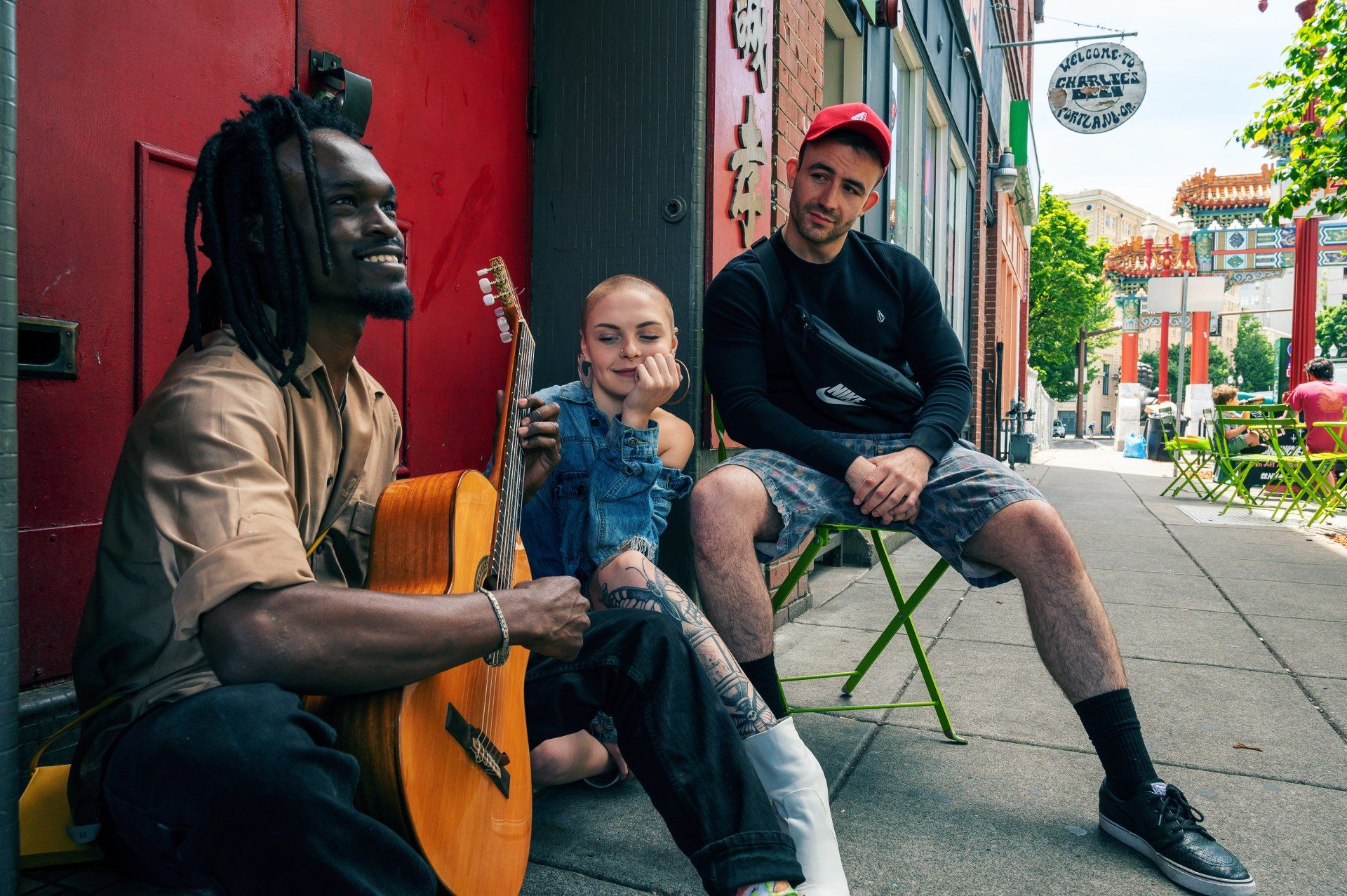
What does it mean to take electric bass guitar lessons?
No band is complete without a good bass player. If you have a drummer, you need a bassist. It's that simple. The bass guitar provides the guiding heartbeat in the song. The bass guitar bridges the gap between the drummer and the melody. If you already play the guitar, then the bass guitar will usually be an easy transition. The basic principles used that are required to play the guitar are generally the same with the bass guitar. Each instrument has a fretboard with strings, based on the same concert-pitch tuning, only one octave lower. It is always best to practice the bass guitar with a metronome or a drum machine. Since bass guitar strings are lower in tonality, they are also thicker than regular guitar strings. This is what gives the bass sound register of the lower notes. Some bass players use a pick, most do not. It all depends on what type of music you're playing and what type of sound you're trying to create. Every guitar player should eventually learn how to also play the bass guitar and vice-versa.
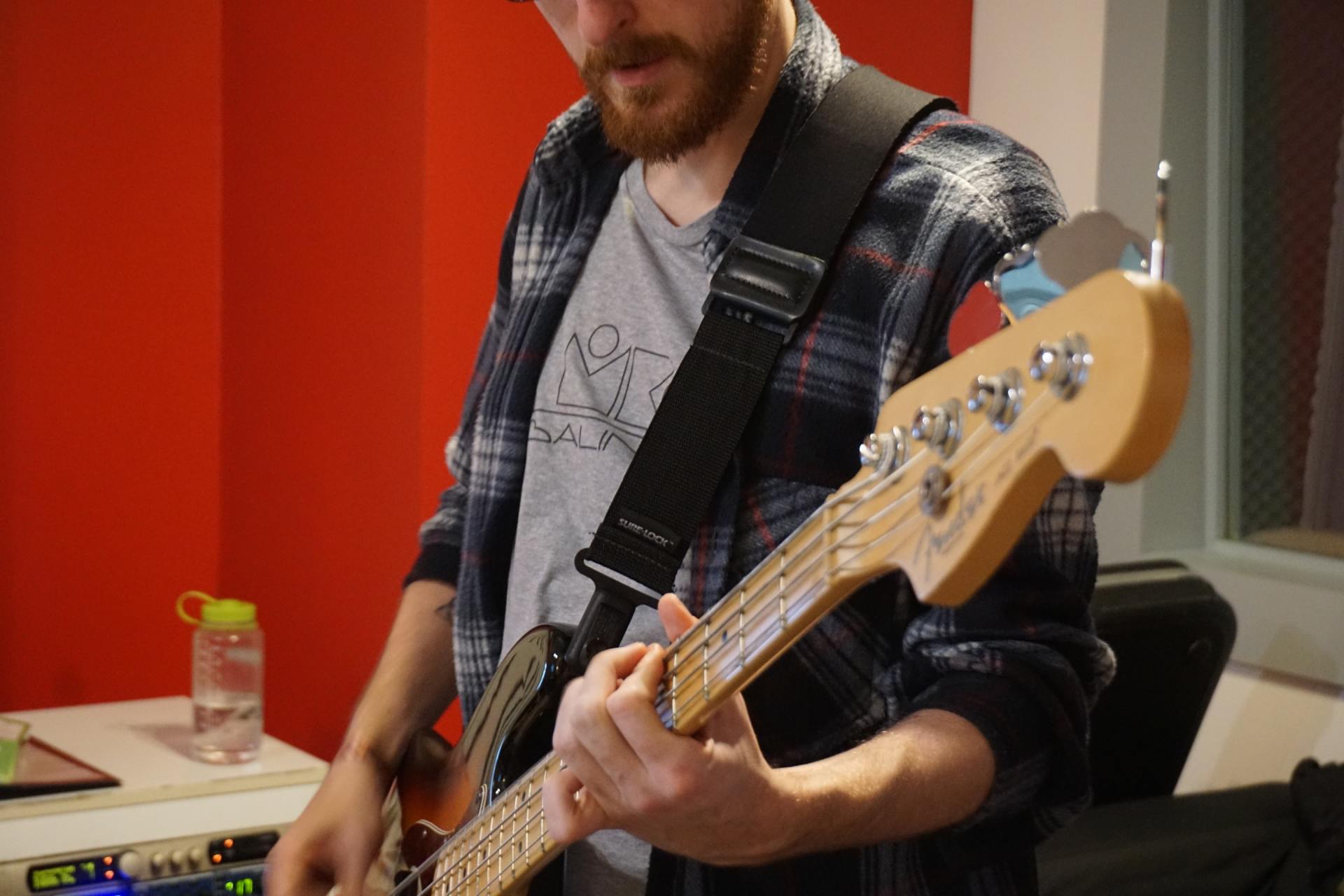
How to choose the best guitar for you.
Maybe you found an old guitar in the basement or the closet that nobody is using. Should you use that for your lessons? Well, it all depends on a few things. First of all, does it have all of the strings or do those strings need to be replaced? Secondly, can the guitar be tuned properly? Third, what kind of condition is the guitar in? Is it beat up piece of junk with a broken or warped neck, or is it playable enough that you could actually take lessons? If you are looking to purchase a brand new guitar, you really won't need to buy anything expensive. I good beginner guitar will normally cost anywhere from $150.00 to $350.00. If you want an electric guitar, you will also need a small practice amplifier. Most reputable music stores will provide experienced sales staff to show you the variety of guitars available in your budget, and allow you to try out as many guitars as you need. Keep in mind, it is always best to try out as many guitars as you can before purchasing the one that was made for you.
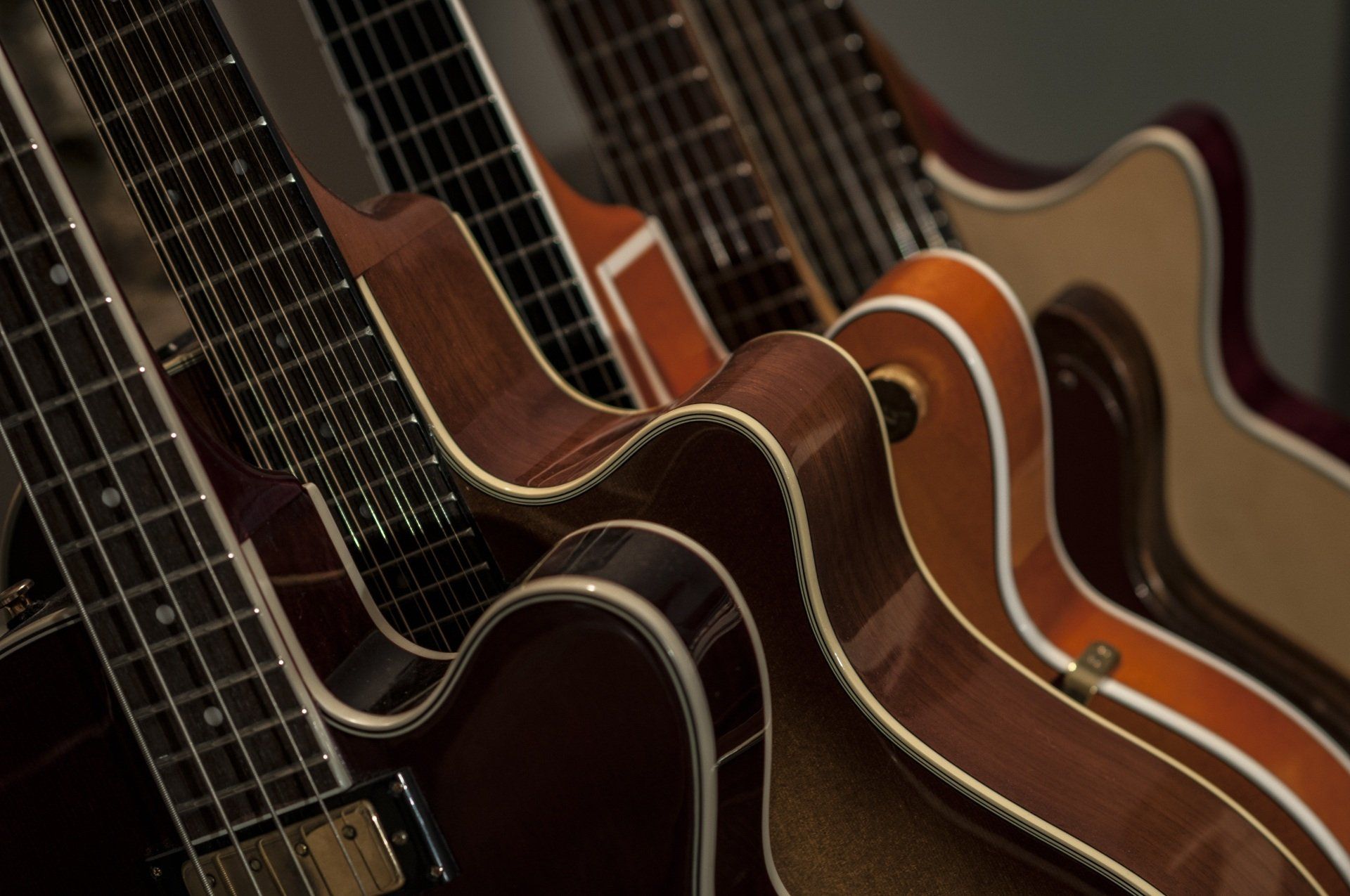
Taking private guitar lessons in your home or at a music store. Which is best for you?
A common myth is that music lessons need to be done at a music store. This might be true for some people who maybe live near a music store and are generally comfortable with the idea of being surrounded by other students, staff, distracting music coming from other students in lesson rooms next to yours. It also provides access to interesting departments in the store. Like the guitar department, where you can window shop for new or used guitars, or maybe you want to try out a new amplifier or buy a new guitar case or strap. A music store will also provide guitar picks and strings, tuners, music books, guitar stands and anything else you would need. Or maybe you just really like the idea of the convenience of having your very own private professional teacher who will come directly to your house once each week; where you can feel more relaxed in the comfort of your own home, and not have to worry about being distracted by other people and noise. Having a music teacher come to your home also eliminates having to drive to the music store and dealing with traffic and weather. Taking lessons at a store might be a little bit cheaper for your wallet, but you'll also need to agree and comply with their set weekly scheduling. It is rare that music stores will have a day and time that fits your busy schedule. Most music stores will also require various application fees, processing fees, and cancellation fees that go along with paying for your lessons. The nice thing about having an instructor come to your house is you generally get the day and time that works best for you. There might be a few logistical scheduling issues if your instructor has a full roster of students, but most private teachers are more than willing to shuffle other students around to make sure you get scheduled for your lessons each week. Always read, understand and agree to the cancellation policy/policies provided by the instructor.
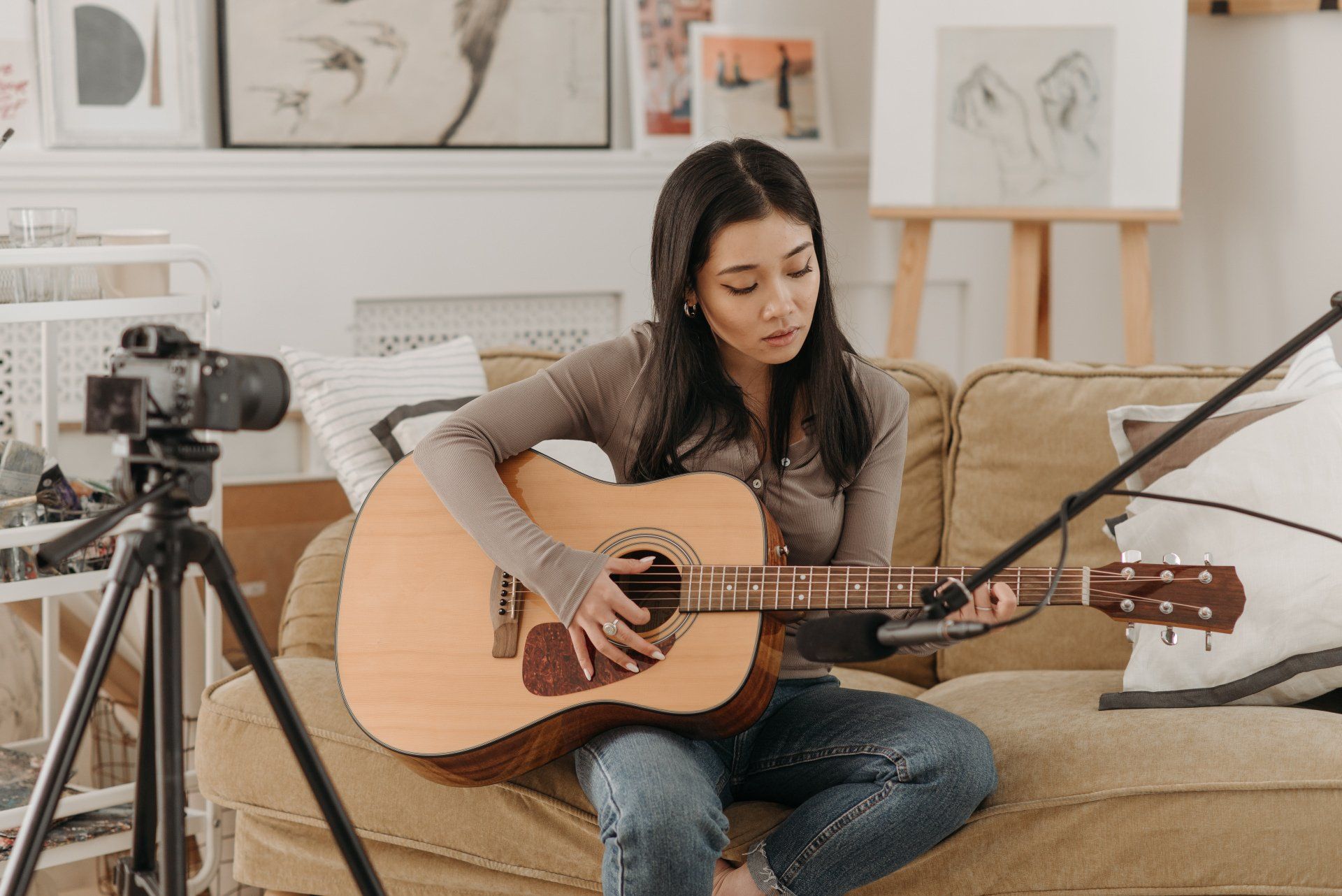
How to choose the right music teacher.
Most reputable private music instructors will have an easy to read website that will provide most of the answers to the questions you might have about hiring their services. The best thing to do is call or text the teacher, and ask about their teaching background and experience. How long have they been teaching? How often do they instruct lessons? How much do lessons cost? Maybe you could ask for references, or check their website to see if their students have provided reviews on their lessons. Ask about the lessons you want and why you have decided to take lessons. Never be afraid to ask all the questions you need to ask, to help you make your decision to get the right instructor for you.
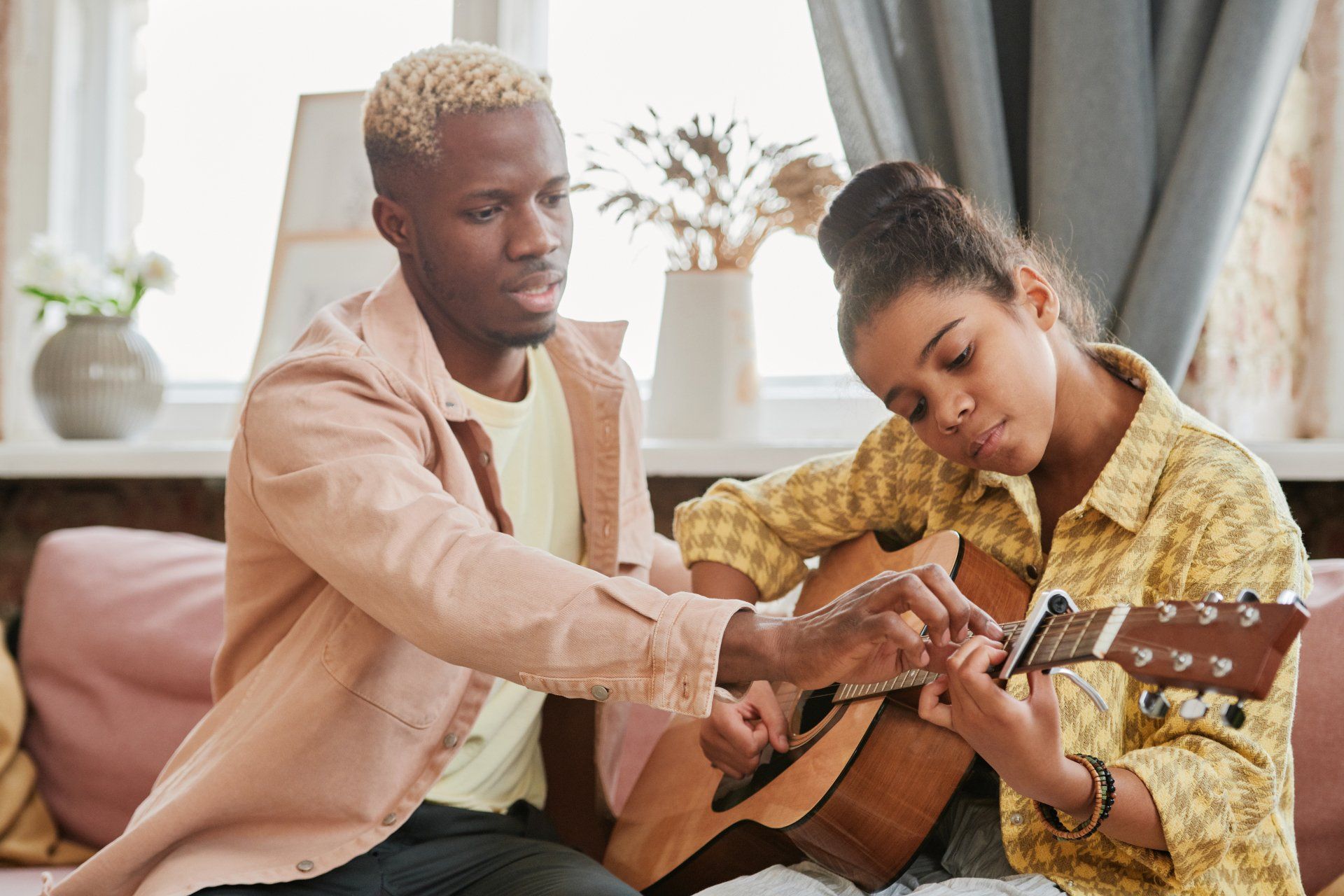
Do you really need to take guitar lessons?
Honestly, it all depends on why you want to be a guitar player in the first place. Do you want to just simply jam loosely with your friends on the back porch on the weekend, and maybe play a few songs that someone else showed you, or do you want to learn proper practicing techniques to make you a much better guitar player? Maybe you want to someday put a band together. You're going to need to know how to work in collaboration with other instrumentalists and musicians to be able to do this. This is what some refer to as auditioning. Taking lessons will prepare you for these opportunities so you won't be so easily passed over onto the next person auditioning after you. Maybe you want to be a singer/songwriter. Music is an art form just like painting, photography, writing or anything else that requires creativity. Proper training in learning how to tap into that creativity can only be beneficial. Yes, there are many musicians out there who have never taken a lesson in their life. Somehow, they manage to play their instrument just fine. The successes of these people are usually very limited. Most musicians who were never formally trained with basic lessons, tend to regret not possessing the needed skills to grow and move forward with their musical endeavors. When considering music lessons, ask yourself why you want lessons. What are your immediate and long term goals as an instrumentalist? Guidance by a professional teacher will only make you a better instrumentalist.
